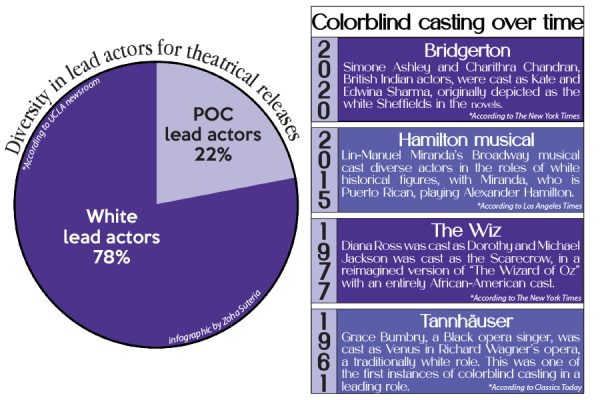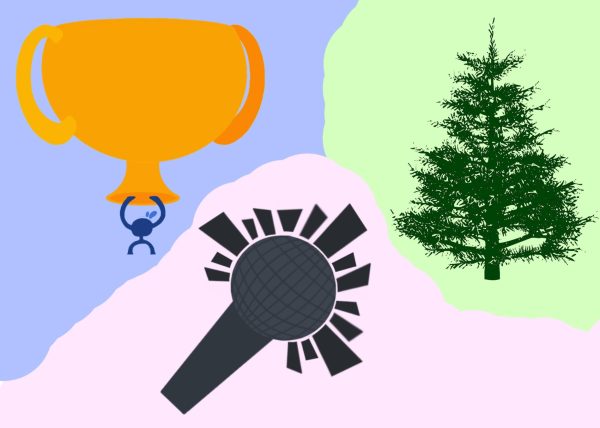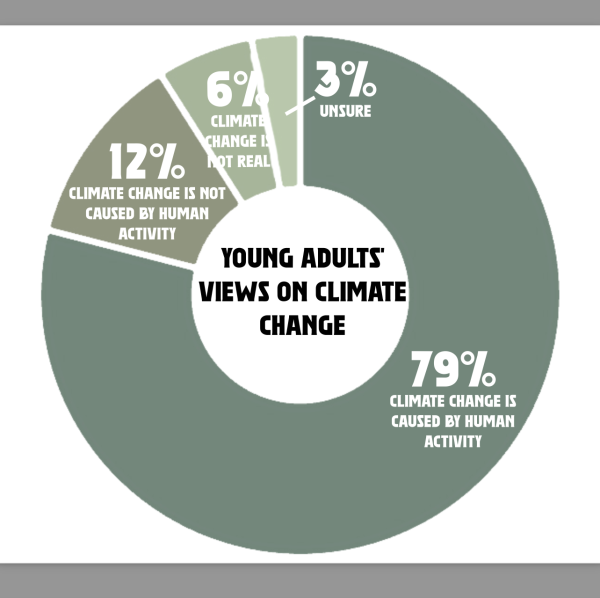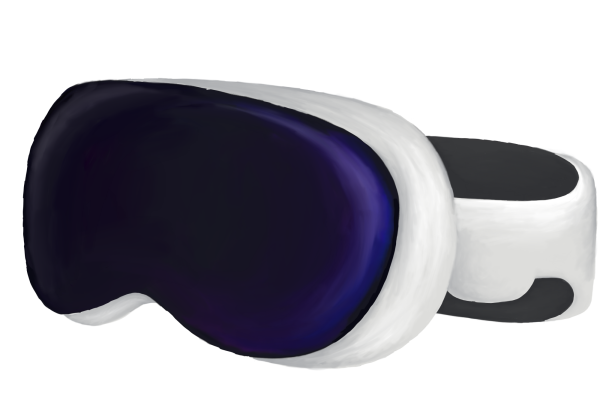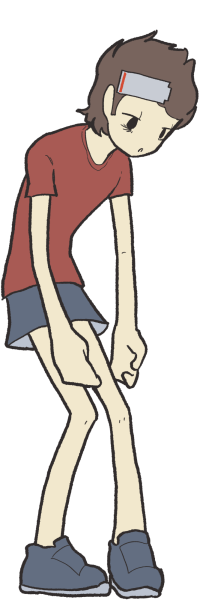Israel, Palestine, and the impact of a different perspective
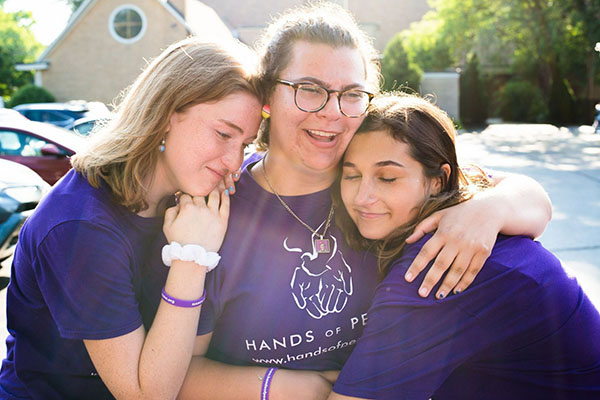
Emotional Experience: Hugging fellow American participants, senior Eliza Schloss cries after watching the Israeli and Palestinian participants depart at the end of the Hands of Peace program. Schloss participated in this program in order to gain a new perspective regarding the Israel-Palestine conflict.
November 12, 2018
In 1938, my grandfather fled Essen, Germany in fear of his life after Hitler claimed power. In 1978, my dad, 14-years-old at the time, watched from his home in Skokie as the right of a Neo-nazi group to march was debated. On Saturday, Oct. 27, 2018, an anti-semitic shooter entered the Tree of Life Synagogue in Pittsburgh and killed 11 people, one of which was a Holocaust survivor who had fled the same hatred that killed her.
This is also the same hatred and divisiveness that led to the creation of Israel as a homeland for Jews. Still, today, Israel is no stranger to oppression. Israel is plagued with controversy regarding its history, formation and the current Israeli-Palestinian conflict.
Hatred is in the anti-semitism that ravaged Europe during the Holocaust and the swastikas etched into bathroom stalls. The hatred also runs through the West Bank Barrier and in bombs that cross the concrete walls between Israel and the Gaza Strip. The root of this hostility comes down to one thing: misinformation.
In my years in Hebrew and Sunday school, I was left ignorant of the Israeli-Palestinian conflict, an issue that affects the lives of those who I’m supposed to be connected to. Due to my lack of understanding of the topic, I never sought to educate myself despite my ability to do so.
Roughly a year ago I started becoming more aware. My cousin Laura is politically active and would travel to Israel-Palestine frequently, but I didn’t know exactly what she did there. I would overhear her talking to my parents about her efforts, but I had just considered that adult talk and something I would never understand: until I began asking questions.
As I came to find out, she would help Palestinians rebuild their homes after the Israeli Defense Force (IDF) would destroy them. At the time, I didn’t ask her the questions that I would like to have asked her now, like why the IDF came. Of course this would have given me a more complete story but still, it was new and shocking information that my 10-year-old self, stuck at Sunday school would never have imagined. I was conflicted, confused and I didn’t know who or what to blame for my ignorance, or if I even should cast blame. Instead of being angry or continuing my streak of oblivion, I decided to educate myself.
This past summer, I joined Hands of Peace, an interfaith organization with the purpose of discussing the Israeli-Palestinian conflict and brainstorming peaceful solutions. Surrounded by Americans, Israelis and Palestinians, I began to absorb information from a variety of narratives.
Most of our discussion about the conflict ensued in a two-and-a-half hour dialogue session each day. For a while, the dialogue sessions revolved in circles. Yelling passed between all sides as we scratched the surface of the conflict and failed to find a progressive way to approach the topic at hand. The turning point of the program came when my dialogue group participated in a storytelling activity in which we were invited to share any personal story.
I think about the stories of my friends from Hands of Peace every day; I think of the machine guns pointed in their faces, the blaring bomb sirens next to their homes and the time ahead of them in combat.
Some days they weigh me down and fail to leave the back of my mind. However, these stories were exactly what I needed. The Israeli-Palestinian conflict, an issue once abstract to me, finally became real: it became my friends, their families and their communities.
I have learned more through Hands of Peace and my peers than I had in my entire lifetime. It’s just as easy to be ignorant of another narrative as it is to seek out another perspective. Recognizing these other perspectives through Hands of Peace was the best decision I’ve made.
For uneducated American Jews like me who hold Israel in such high regard, I am not asking you to change your opinions but to learn of others. That goes for everyone as well. The best opinion comes from someone who is well-informed and equally prepared to listen to the opposition.
At the end of every dialogue session, we went in a circle and said one word to describe how we were feeling. Many people said “confused” or “interested.” Still, many others said words like “optimistic” or “hopeful.” This demonstrates the potential and power of seeking out information. This effort translates to educated opinions— and change.






